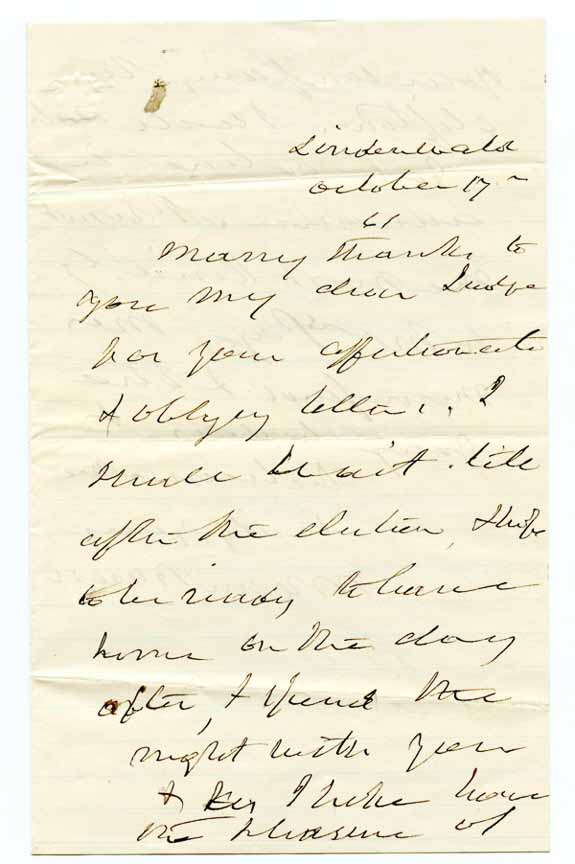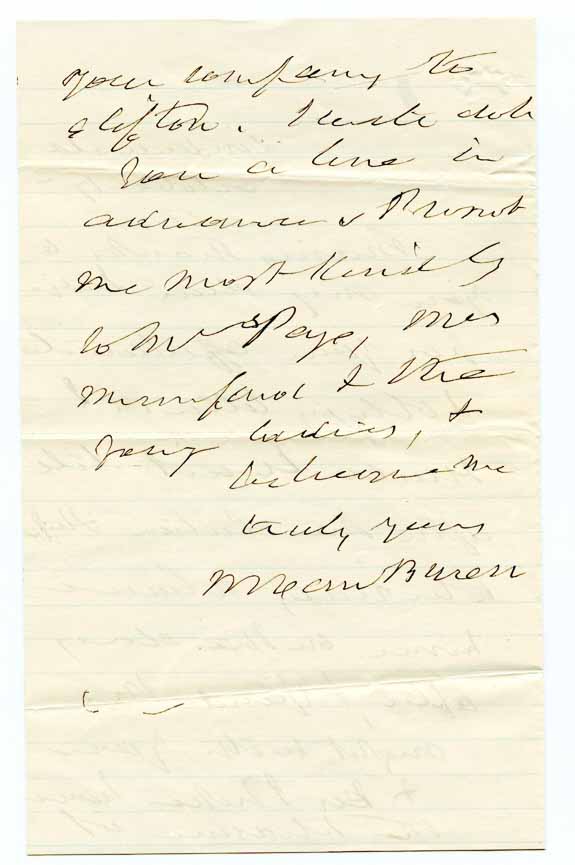Presidents & First Ladies
CARTER, JAMES EARL, JR. “JIMMY” (1924-2024) Thirty-Ninth U.S. President – 1977-81; Governor of Georgia – 1971-75

Autograph Note Signed, 2 ½” x 4 ¼”, an undated, cordial reply to a letter.
“To Mark: Thank you for the nice letter, and best wishes to you and your family. Jimmy Carter.”
Excellent.
COOLIDGE, CALVIN (1872-1933) Thirtieth U.S. President - 1923-29; U.S. Vice President – 1921-23; Governor of Massachusetts – 1919-21
Document Signed, 3” x 8 ½”, Northampton, Massachusetts, March 29, 1929, “Calvin Coolidge,” a partly printed check, also accomplished by Coolidge less than a month after leaving office as U.S. President, drawn on The Hampshire County Trust Co. and made payable to one Mary Ahearn for thirty dollars.
The check is in very good condition, with minor smudging of ink to several letters, a small tear in the upper margin, and a few light vertical folds. The hole-punch cancellation at center affects an insignificant part of the beginning of Coolidge’s signature.
COOLIDGE, CALVIN (1872-1933) Thirtieth U.S. President - 1923-29; U.S. Vice President – 1921-23; Governor of Massachusetts – 1919-21
Vice President Coolidge Thanks a Journalist from The Nation
Typed Letter Signed, 7” x 9”. Writing on imprinted official stationery, U.S. Vice President Coolidge thanks Marian Tyler, a journalist with The Nation, a liberal weekly magazine first published in 1865, for her letter.
“THE VICE-PRESIDENT’S CHAMBER, WASHINGTON, February 2, 1922. Miss Marian Tyler, The Nation, 20 Vesey Street, New York, N.Y. My dear Miss Tyler: Please accept my thanks for your letter and enclosure. It is always interesting to see the discussion that goes on in the public press. Very sincerely yours, Calvin Coolidge.”
The letter is lightly toned and soiled, with a horizontal fold at the center.
COOLIDGE, CALVIN (1872-1933) Thirtieth U.S. President - 1923-29; U.S. Vice President – 1921-23; Governor of Massachusetts – 1919-21
The Vice President-Elect Thanks a Supporter – Just Two Days after the 1920 Election
Typed Letter Signed, 7 ¼” x 9 ½”, on imprinted stationery as Massachusetts Governor. During the second year of his short tenure as governor - just two days after election to U.S. vice president on the Warren G. Harding ticket - Coolidge thanks “Mr. Ernest M. Hortmann, Boston, Mass.,” for a letter.
“EXECUTIVE DEPARTMENT, STATE HOUSE, BOSTON. 4th November, 1920…My dear Mr. Hortmann: It was exceedingly thoughtful of you to send me such a gracious message. I want to thank you for your kind wishes which I assure you I reciprocate. Cordially yours, Calvin Coolidge.”
The letter is lightly and evenly toned, with two horizontal folds and a pinhole along the bottom edge.
FILLMORE, MILLARD (1800-74) Thirteenth U.S. President - 1850-53; U.S. Vice President – 1849-50; U.S. Congressman – New York – 1833-35 & 1837-43
-100.png)
-100.png)
Signed Album Page, 5 ¾” x 7 ¼”, “Millard Fillmore, Buffalo, N[ew] York,” as U.S. Representative from New York, circa 1840. Undoubtedly taken from a period autograph album, the single sheet is also signed, front and reverse, by eight of Fillmore’s colleagues in the U.S. House of Representatives: Christopher Morgan, New York; Richard Wigginton Thompson, Indiana (U.S. Navy Secretary - 1877-80); John Maynard, New York; Francis Granger, New York (U.S. Postmaster General - 1841); Samuel Lewis Hays, Virginia; John Campbell, South Carolina; John Patterson Bryan Maxwell, New Jersey; Thomas McKean Thompson McKennan, Pennsylvania (U.S. Secretary of the Interior – 1850).
Lightly and evenly toned, with minor staining; old binding chips at the left edge.
FILLMORE, MILLARD (1800-74) Thirteenth U.S. President - 1850-53; U.S. Vice President – 1849-50; U.S. Congressman – New York – 1833-35 & 1837-43

Signature, an early frank as U.S. Representative from New York, circa 1840, “Free, M. Fillmore, M[ember] C[ongress],” on a 1 ½” x 4 ½” portion of a larger postal cover.
On brown paper, with several creases.
FILLMORE, MILLARD (1800-74) Thirteenth U.S. President - 1850-53; U.S. Vice President – 1849-50; U.S. Congressman – New York – 1833-35 & 1837-43
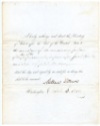
Document Signed, 8 ¼” x 10 ¼”, as U.S. President, a partly printed “affix the seal” document.
“I hereby authorize and direct the Secretary of State to affix the Seal of the United States to the remission of the remaining portion of the term of imprisonment, imposed upon Jacob Rowles, convicted of petit larceny; dated this day, and signed by me; and for so doing this shall be his warrant. Millard Fillmore, Washington, October 3, 1850.”
Light soiling and wear, with a few edge chips and tears; weakness and minor paper separation at the edges of two horizontal folds.
FILLMORE, MILLARD (1800-74) Thirteenth U.S. President - 1850-53; U.S. Vice President – 1849-50; U.S. Congressman – New York – 1833-35 & 1837-43
-100.png)
-100.png)
Autograph Letter Signed, 8” x 10”. As a second-term U.S. representative from New York, Fillmore solicits Secretary of War Joel Poinsett in the discharge of a constituent’s son from his enlistment. A lengthy report on the reverse is signed by longtime U.S. Army Adjutant General Roger Jones.
“House of Rep[resentatives]
July 6, 1840
Sir,
I have the honor to enclose a letter from James Sheldon, Esq[uire], a counsellor at Law residing in the city of Buffalo, N.Y. with an affidavit of Mr. & Mrs. Brooks, on which they ask to have his son, a lad of 18, discharged from his enlistment into the merited Service of that place.
As I shall soon leave, your earliest attention to this application will greatly oblige,
Your most ob[edien]t ser[van]t,
Millard Fillmore
Hon[orable] J.R. Poinsett
P.S. Please return Mr. Sheldon’s letter.”
Somewhat heavier toning from past matting at the edges; an old tear at the upper right corner, along with clean separation at the edges of two horizontal folds, is repaired on the reverse; several chips at the left edge and corner of the integral leaf.
HARDING, FLORENCE KLING (1860-1924) U.S. First Lady - 1921-23; Wife of U.S. President Warren G. Harding
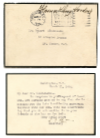
Franked Envelope, 3 ¼” x 5”, “Florence Kling Harding,” sending her deceased husband’s autograph, no longer present, and bearing a March 10, 1924, Washington, D.C. postmark; black-bordered, in mourning of the death of President Warren G. Harding on August 2, 1923. Accompanied by a typed note of the same date, dimension, and bordering on a card, signed by a secretary.
Both pieces are lightly and evenly toned, with light soiling and wear and minor chipping to the borders; the reverse of the envelope is irregularly cut and torn.
HARRISON, BENJAMIN (1833-1901) Twenty-Third U.S. President - 1889-93; Union Brevet Brigadier General, during the American Civil War; Colonel of the 70th Indiana Infantry; U.S. Senator – Indiana – 1881-87
-100.png)
-100.png)
Signature, as U.S. Senator, “Benj. Harrison, Ind[ian]a,” on a 5 ½” x 8 ¼” album page, above the signature of Daniel W. Voorhees, Harrison’s Indiana colleague in the U.S. Senate; the large signature of U.S. Senator John A. Logan, Union general from Illinois during the American Civil War, is on the reverse.
Excellent, with light, even toning and a few superficial stains and light surface creases.
JOHNSON, ANDREW (1808-75) Seventeenth U.S. President – 1865-69; U.S. Vice President – 1865; Union Brigadier General; Military Governor of Tennessee – 1862-65; Governor of Tennessee – 1853-57; U.S. Senator – Tennessee - 1875
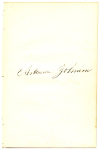
Signed Album Page, 4 ¾” x 7 ¼”, “Andrew Johnson.”
Excellent, with light, even toning and original binding holes at the left edge.
JOHNSON, LYNDON BAINES (1908-73) Thirty-Sixth U.S. President – 1963-69; U.S. Vice President – 1961-63; U.S. Senator – Texas – 1949-61; U.S. Representative – Texas – 1937-49
-100.png)
-100.png)
Signed Program, 4” x 6”, as President on the front cover, “Lyndon B. Johnson,” for a White House event honoring the President of the Philippines, October 5, 1964, featuring The Harkness Ballet.
On heavy paper, lightly and evenly toned, with superficial wear and soiling.
TRUMAN, HARRY S. (1884-1972) Thirty-Third U.S. President - 1945-53; U.S. Vice President - 1945
Thanking Missouri Constituents for a Christmas Ham
Typed Letter Signed, 7” x 8 ¾”, as President on White House stationery, thanking “Mr. and Mrs. Wallace Holt, 229 Main Street, Boonville, Missouri,” for a Christmas ham.
“Washington, January 3, 1949. Dear Mr. and Mrs. Holt: You certainly were generous to send us that ‘blue ribbon’ ham which I am sure you must have prized very highly. We are using it sparingly so that we may enjoy it for a long time. I cannot tell you how much the family and I appreciate your though of us and we unite in extending all good wishes to you. Very sincerely yours, Harry S. Truman.”
In excellent condition, the letter is lightly and evenly toned, with the usual horizontal fold at the center, and there are a few minor glue stains on the blank reverse of the integral leaf.
TRUMAN, HARRY S. (1884-1972) Thirty-Third U.S. President - 1945-53; U.S. Vice President - 1945
Thanking Major General W.B. Persons for Thirty Years of Military Service
Typed Letter Signed, 7” x 8 ¾”, as President on White House stationery, to “Major General W.B. Persons, Pentagon Building, Washington, D.C.”
“Washington, June 29, 1949. Dear General Persons: I understand you are on the eve of retirement after thirty years service. I just want to expressw to you my hope that you will have a long and happy life anda useful career after your retirement. I was well acquainted with your work in the Congress while I was in the Senate and you made a great contribution to the war effort. Best of luck to you. Sincerely yours, Harry S. Truman.”
After entering the U.S. Army Coast Artillery in 1917, Wilton “Jerry” Persons served in the American Expeditionary Force in World War I and in Europe during World War II, rising to the rank of Major General in 1944. He served as legislative liaison for the Defense Department from 1948 until his retirement in 1949 and as special assistant to General Dwight Eisenhower, 1951-52. Persons campaigned for Eisenhower in the 1952 presidential election and served as the President’s special assistant from 1953 through 1958, then as chief of staff from 1958 through 1961.
The letter is lightly and evenly toned, with a few small stains and the usual horizontal fold at the center.
VAN BUREN, MARTIN (1782-1862) Eighth U.S. President - 1837-41; U.S. Vice President – 1833-37; U.S. Secretary of State – 1829-31; Governor of New York - 1829
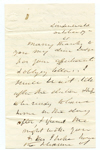
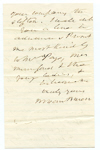
Civil War-Date Autograph Letter Signed
War-Date Autograph Letter Signed, 5” x 8”, two pages, front and reverse of the first leaf of a folded letter-sheet. From his home in Kinderhook, New York, Van Buren sends details of an upcoming trip to an unnamed friend.
“Lindenwald, October 17th [18]61. Many thanks to you my dear Judge for your affectionate & obliging letter. I shall wait till after the election. I hope to be ready to leave home on the day after. I spend the night with you & I hope have the pleasure of your company to Clifton. I will drop you a line in advance. Present me most kindly to Mrs. Page, Mrs. Mumford & the young ladies, & believe me truly yours, M. Van Buren.”
In excellent condition overall, the letter is lightly and evenly toned, with a few superficial stains and three horizontal folds.


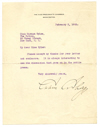
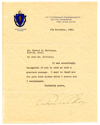
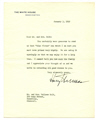
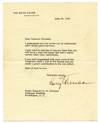
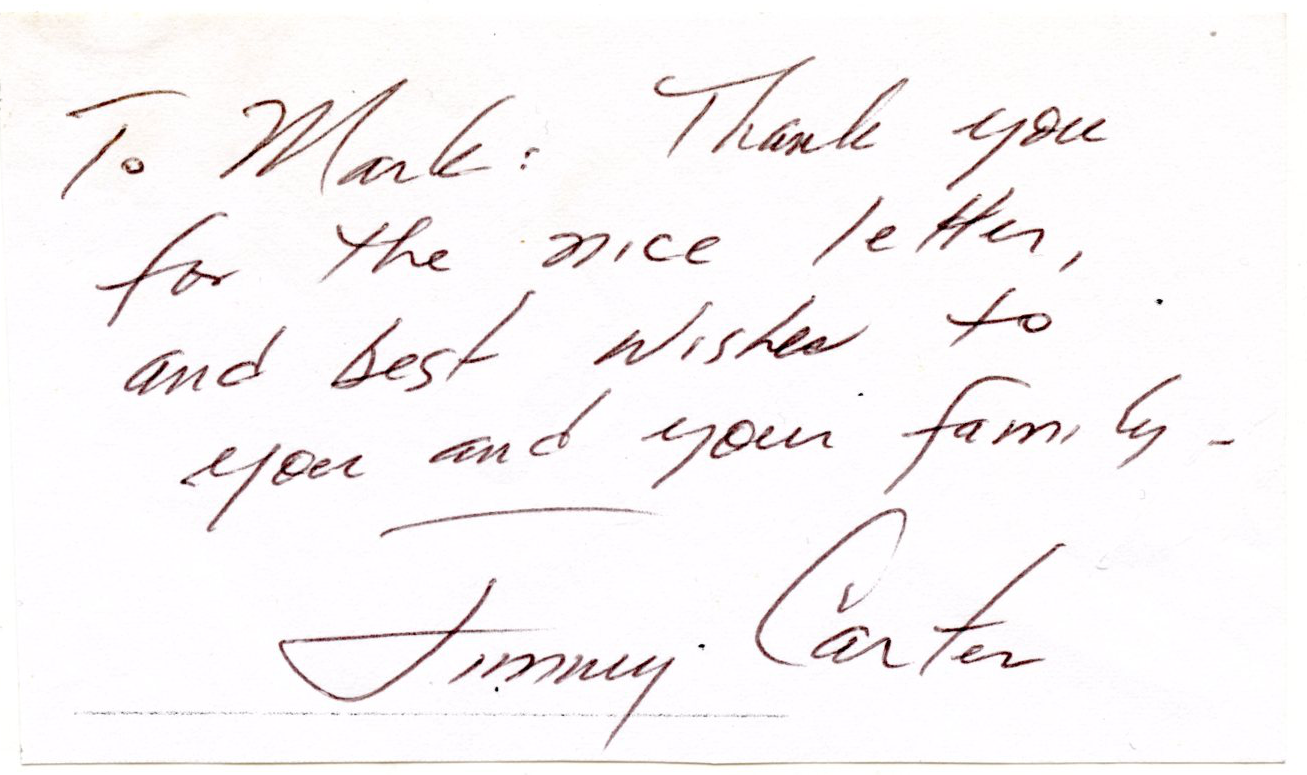
-1803.png)
-1797.png)
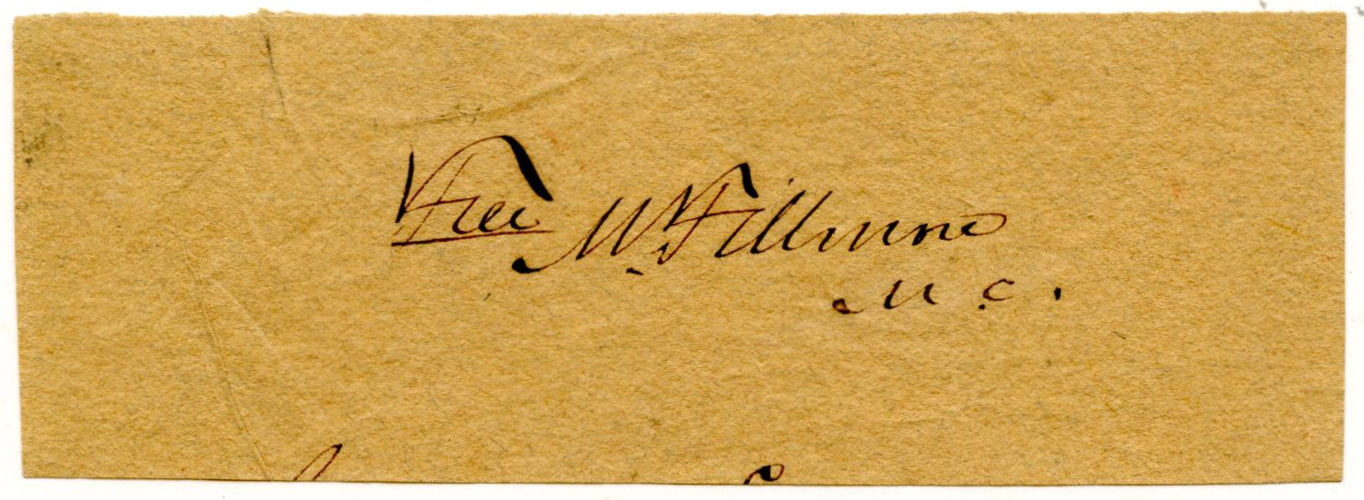
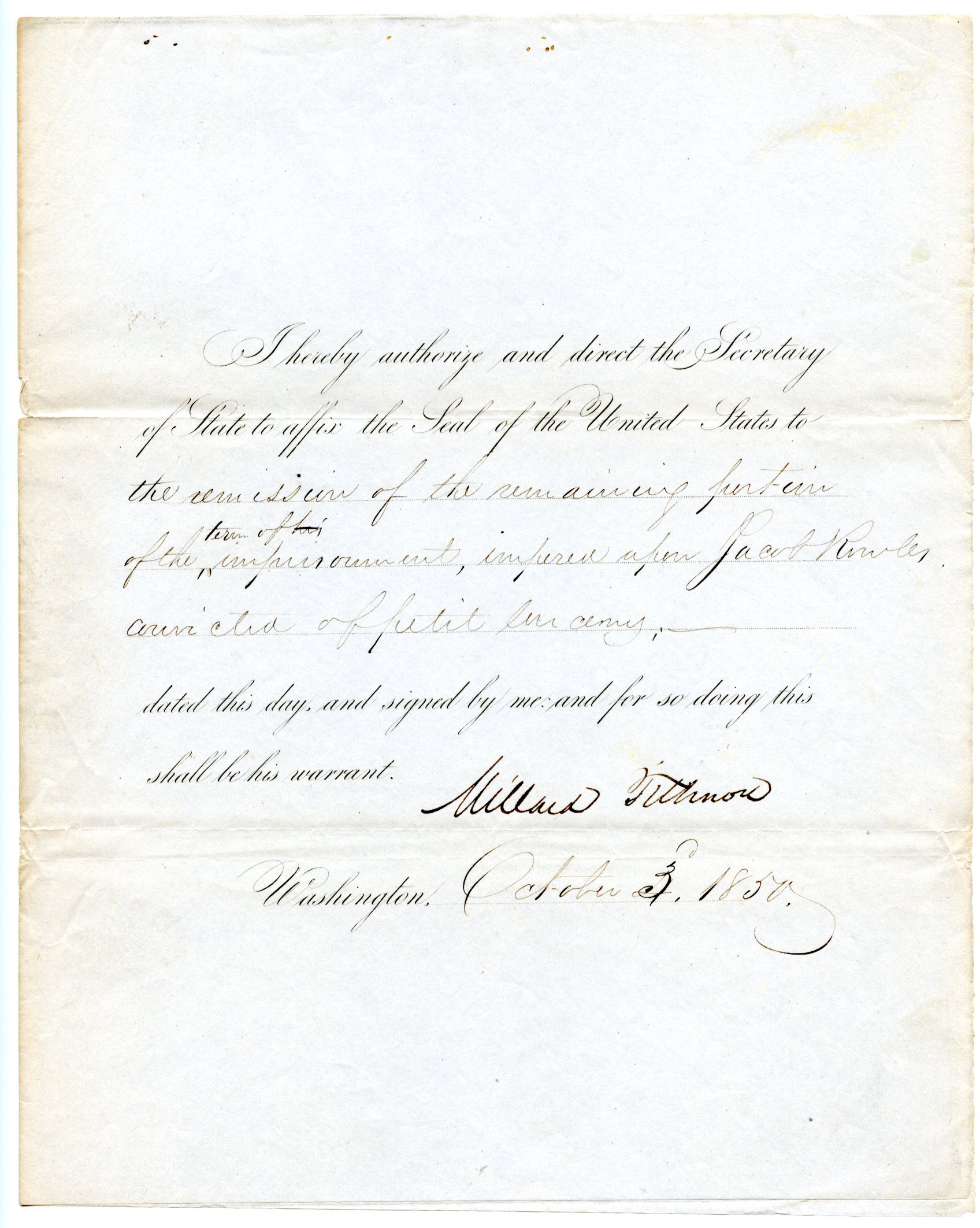
-1999.png)
-1999.png)
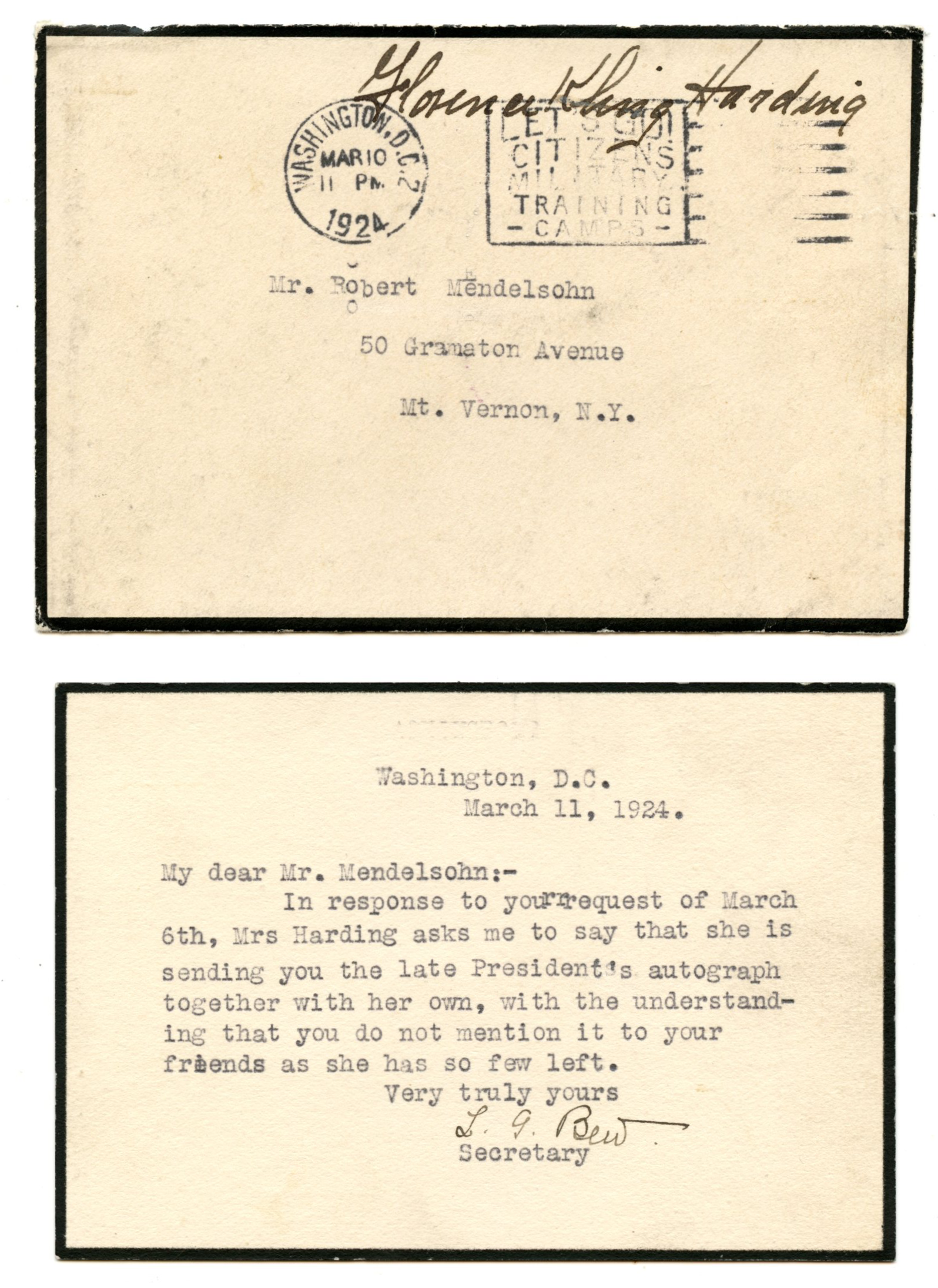
-1999.png)
-1999.png)
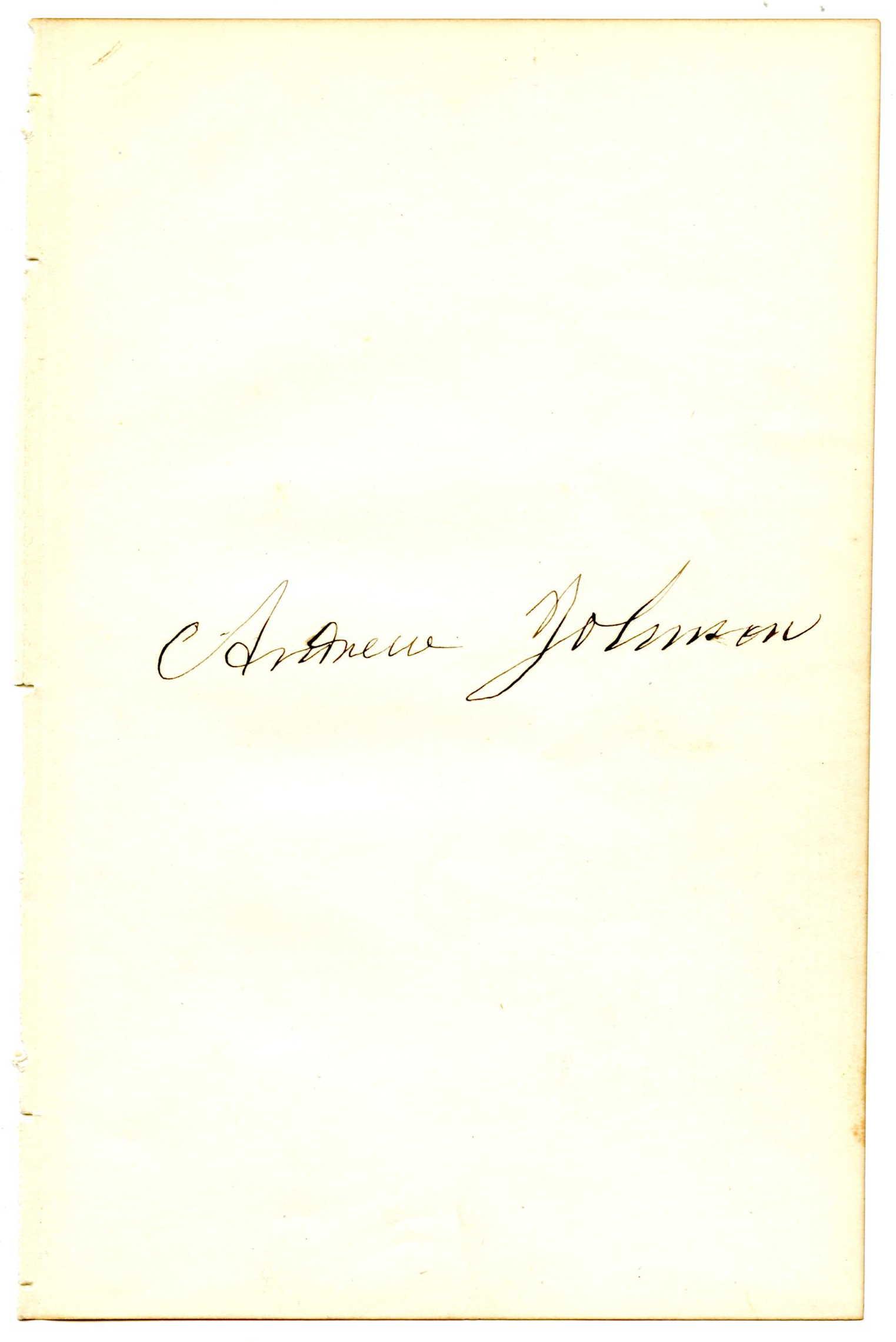
-1995.png)
-1995.png)
